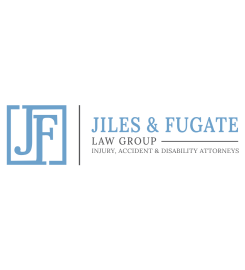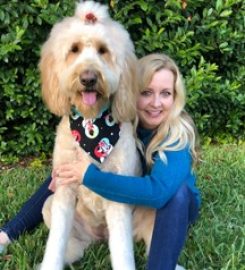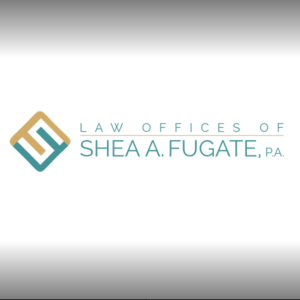The first thing you should do if you need to apply for SSD Benefits is to gather the information that you will be required to submit with your application to the Social Security Administration.
This includes information related to your medical condition, your treatment, your medications, and your work history. You will then need to complete an application, either online or in-person at an Orlando or other Florida Social Security office.
At The Law Offices of Shea A. Fugate, PA, we will handle all these details and file your application for you.
What are the eligibility requirements for Social Security Disability Benefits?
To be awarded Social Security Disability Benefits, you must have worked for a sufficient amount of time in a Social Security-covered job. This generally means 10 or more years.
You must also have a medical condition that amounts to a disability as defined by the Social Security Administration. It must be a severe enough condition that you can no longer work.
If you aren’t sure whether you qualify for Social Security Disability Benefits, contact us now to schedule your free consultation.
There are circumstances in which you can return to work while applying for Social Security Disability Benefits. However, it is advisable to discuss the special rules surrounding work and SSD applications with an experienced Orlando and Maitland, Florida Disability Attorney before doing so.
Contact us to schedule your free consultation if you are considering filing for SSD Benefits and are also hoping to return to work.
Social Security Disability Benefits (“SSD”) is a governmental program designed to assist US workers who have been rendered unable to work due to a severe medical impairment.
Social Security Insurance Benefits (“SSI”) are age-related benefits financed by general US taxation. SSI eligibility is dependent upon age and income limitations.
You will need to attend a hearing before an Administrative Law Judge (“ALJ”) if you receive a denial of your initial application and wish to appeal.
While an ALJ will make whatever decision he or she is inclined to make, if you have received an initial SSD denial, your best chance of receiving a Benefits award is to retain an experienced Florida Disability attorney to maximize your odds of success.
The Law Offices of Shea A. Fugate, PA is experienced at presenting the best case possible at SSD hearings and will ensure that your side of the story is heard.
The SSA will take 3-5 months to issue an initial decision after you apply for SSD Benefits in Florida.
If you need to appeal an initial denial, it may take more than a year to obtain an appeal hearing before an Administrative Law Judge.
How much money you receive with your Social Security Disability Benefits award will depend upon how much and for long you worked prior to becoming disabled.
For widow’s or widower’s Disability Benefits, the amount you receive will likewise depend upon your late spouse’s work history.
Compassionate Allowances are expedited SSD approval processes for certain medical conditions the severity of which is obvious.
The specific conditions for which Compassionate Allowance may be approved are listed here on the SSA’s website.
Disabled children under the age of 18 may be eligible to continue receiving benefits after turning 18 on the child’s parent’s work record if they have a qualifying disability that started before the age of 22.
That is, the disability must meet the definition of “disability” applicable to adult SSD applicants.
Substantial Gainful Activity (“SGA”) is the measurement used by the SSA to describe the level of work or work-related activity in which a Disability Benefits applicant is capable of performing.
The SSA defines “substantial” as work that involves significant physical or mental activity, or a combination of both.
It defines “gainful” work activity as:
• Work performed for pay or profit;
• Work of a nature generally performed for pay or profit;
• Work intended for profit, whether or not you obtained any.
If you earn more than a certain amount of money from productive work, the SSA will generally consider you to be engaging in SGA.
If you are capable of engaging in SGA, your SSD application will be denied.
Worker’s compensation or other public disability benefits may cause your SSD award to be reduced accordingly.
Unemployment benefits not caused by disability should be discussed with your Florida Disability Attorney, but, generally, unemployment insurance benefits will not affect the amount of your SSD Benefits award.
The Veterans Benefits program is separate from the Social Security Disability Benefits program. Both programs maintain separate application processes with different eligibility criteria.
It is possible to receive both or to qualify for one source of benefits and not the other.
The Law Offices of Shea A. Fugate, PA will help you explore your full array of possible benefits options.
Once the Social Security Administration determines that you are disabled under its definition of the term, there is usually a 5-month waiting period before you will receive your Benefits.
Your first check will be paid the sixth month after the date that the SSA finds that your disability commenced.
If your initial application is filed beyond this timeframe, there is effectively no waiting period.
You do not need a lawyer to apply for Social Security Disability Benefits in Florida. Some attorneys will, in fact, actively encourage you to file your initial application on your own and then get in touch only upon receipt of an initial denial.
However, SSA statistics demonstrate that people who do retain attorneys to assist them even from the initial application state with their SSD Benefits applications win awards far more often than those who do not.
The Law Offices of Shea A. Fugate, PC will ensure that your initial application is completed properly, contains no obvious errors, and is filed properly with the correct medical evidence filed accordingly.
When you do receive an initial denial, we will be in place to assist with your appeal and to navigate you to and through your Administrative Law hearing.
Non-attorney advocates have received training in the Social Security Benefits application process but are not licensed to practice law, provide legal advice, or represent you before a judicial forum.
A non-attorney advocate might assist you with the drafting of your initial SSD Benefits application, but, if you receive a denial, you will not have a licensed attorney to appeal and argue your case before an Administrative Law Judge.
If you are an Orlando or Maitland, Florida resident in need of a Social Security Disability Attorney but are worried about affordability, worry no more.
At The Law Offices of Shea A. Fugate, PC, we will meet with you and discuss your options with you at no charge.
If you do retain us to prepare and file your Social Security Disability Benefits application or appeal for you, we take no fee until and unless your Benefits are awarded.
If we lose, there is no charge to you.
If we win, Federal law limits the fees that Social Security Lawyers can collect to no more than 25% of the past-due Disability Benefits awarded.
We are located in Maitland and Orlando, Florida, and we represent Social Security Disability clients across Florida, including Kissimmee, Lake Mary, Leesburg, Ocala, and Winter Park.
If you are located in Central Florida and interested in filing an application for Social Security Disability Benefits, contact us now to schedule your free initial consultation.
Your questions are answered by an experienced elder law attorney dedicated to serving seniors throughout Maitland and Orlando, Florida
Whether looking for answers for yourself, a spouse, or a parent with elder law needs, you’ve come to the right place. Florida elder law attorney Shea Fugate is dedicated to helping seniors plan for the future and deal with present needs to make the most of their years with their families and for themselves. Read on for answers to commonly asked questions, and contact the Law Offices of Shea A. Fugate, P.A. if you have other questions or need immediate assistance with an elder law matter in Maitland or Orlando.
There are many different ways to arrange to leave property to your spouse as well as your children from a former marriage. One option is a Qualified Terminable Interest Property Trust, commonly called a Q-TIP Trust. This type of trust provides income to your surviving spouse during their lifetime, with the rest of the assets held in trust for your children from your first marriage. A Q-TIP trust is just one of many possibilities that may work for you.
A special needs trust (SNT), also called a supplemental needs trust, can be used to provide funds to an individual with special needs without jeopardizing the individual’s ability to receive Medicaid, Supplemental Security Income (SSI), or other needs-based government services. The funds in a special needs trust must supplement the public benefit and cannot be used for certain activities. An SNT should not be used to buy food, pay rent or utilities, or give the recipient regular, unrestricted cash payments. Such impermissible uses could cause a one-third reduction in SSI or worse. SNT funds can be used for a variety of other purposes, however, including a car; a computer; education, training or enrichment classes; hobbies; home furnishings; a gym membership; memberships to zoos or museums; a bus pass; cable TV; summer camps; vacations and travel for the individual and a companion; medical expenses not otherwise covered; and more.
Just as family members can provide for a child with special needs without jeopardizing Medicaid eligibility by putting assets into a special needs trust, a disabled adult can create a self-settled special needs trust with his own money. The individual can put enough money into the trust to spend down to Medicaid eligibility levels, and the money in the trust can be used to supplement Medicaid without replacing it.
Call the Law Offices of Shea A. Fugate, P.A. in Maitland and Orlando. There are steps you can take for nursing home planning even if you are already in “crisis” mode. Don’t simply think you can put your property in your children’s name and magically qualify for Medicaid. The government has a five-year lookback period for transfers of property, and they may see those transfers as a fraudulent attempt to be eligible for Medicaid. Many different kinds of transfers are allowable, however, including certain transfers to spouses, children acting as caregivers, or disabled children. This is a complicated area of law; call our office before making any transfers of property, and we’ll make sure you take the right steps to get nursing home care you can afford.
Choosing a nursing home is a big step, and you want to feel confident you found the right facility. First off, you can talk to other family members, friends or neighbors who have a loved one in a nursing home; not only can this help you find a quality facility, but also one where the patient may already know someone there. If the patient has special health needs, talk to the patient’s doctor to recommend a facility that meets the patient’s health needs. You can also use Nursing Home Compare to narrow your search. Nursing Home Compare is a Medicaid website that uses a five-star rating system to rank nursing homes in your area based on quality measures like inspections and nurse-to-patient staffing ratios. Once you have a shortlist of choices, visit the facilities and see them for yourself. Talk to residents, staff, and administration during your visit. All facilities will offer a guided tour by appointment, but also try to pop in unannounced and see if they will let you look around, even if they weren’t prepared for your visit. This will give you a better sense of what the facility is like on a regular basis.
Alzheimer’s and dementia are progressive diseases, and patients with dementia are likely to eventually need others to take charge of their care and make decisions on their behalf. When the disease is still in its early stages, this is a great time to engage in planning and involve the patient in the process. While patients are still competent to make decisions, they can provide valuable input on whom they would trust to make medical decisions on their behalf and what sorts of medical interventions they may not want. Planning can also set out criteria for if, when, and where the patient should receive care outside the home. Of course, proper planning can also ensure that costs of long-term care are affordable without putting an undue hardship on the family or the person’s estate.
Call today for a free consultation to discuss your needs with a dedicated and compassionate Orlando elder law attorney. We maintain flexible appointment times during the week to meet your needs and offer a variety of affordable payment options, including flat-fee structures so you know upfront how much your costs will be. We also work on a contingency fee basis in appropriate cases. With a contingency fee, we advance all costs necessary to pursue your case, and our fee comes as a percentage of the amount we recover for you. If we are unsuccessful, then you don’t owe us anything. Our Orlando social security disability attorneys will help you with your long-range planning or immediate needs, so give us a call, and let’s get started today.





